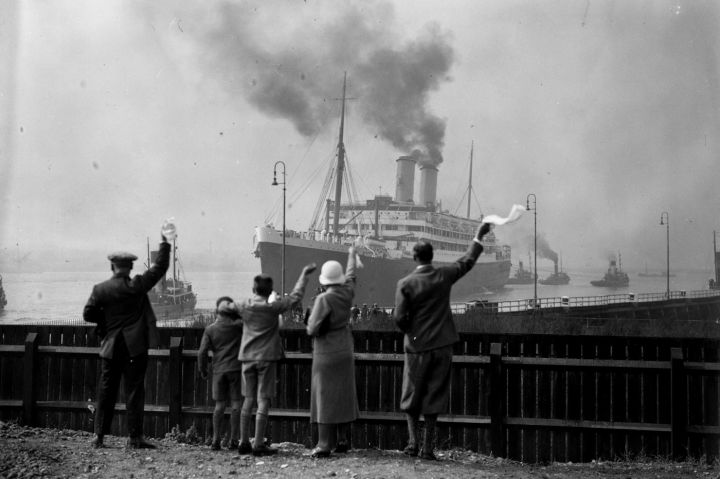Big ships
The water kind, not the Warwick kind

Don Bradman played a big role in making Test cricket popular, but how restricted might his impact have been if he had never left the shores of Australia? Which brings us to ships and cricket's long historical association with them.
With the benefit of hindsight and because of the repeated telling of this tale, we can attach a quality of portentous doom to the photo above - of spectators waving goodbye to the Orontes as it set sail from Tilbury, carrying the English cricket team to Australia in September 1932. The smoke, the white handkerchiefs, the two boys, one bigger, resting his weight on the smaller one…
From farewell to welcome (to farewell): Bradman and the Invincbles are greeted in the Tilbury docks for Bradman's final Test series, in 1948.
Can't get a World Cup ticket? No worries. You can float in and out of the game at your pleasure. Wellington, 2015.
Ships didn't only help spread top-level cricket. They even helped take the game to the very top of the world. Above is an illustration of cricket being played between crew members of HMS Hecla and HMS Fury during an Arctic exploration mission led by William Parry between 1821 and 1823.
ICC Hall of Fame? Yawn. If you must honour me, name a trawler after me. Fiery Fred and his wife inaugurate his namesake at the Beverley shipyard in Yorkshire, 1960.
Sydney Barnes poses for a photo with his wife and son on the RMS Saxon while travelling to South Africa for England's 1913-14 Test tour there. Barnes took an incredible 49 wickets at 10.93 in the first four Tests but refused to play the fifth after the management refused to pay for his wife's accommodation.
Nishi Narayanan is an assistant editor at ESPNcricinfo
Read in App
Elevate your reading experience on ESPNcricinfo App.